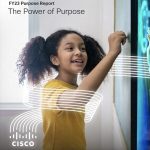By the time he was 25 years old, Willie Meyer had undergone 190 brain surgeries and spent almost every holiday in the emergency room, all because he was experiencing a headache or fatigue. These are benign symptoms in an average person, but life threatening for someone like Willie, who suffers from hydrocephalus—a condition in which excess fluid builds up in the brain.
Hydrocephalus can be treated with surgically implanted shunts, but the shunts often fail. One sign of failure is a headache, which forces patients like Willie to undergo a CT scan, MRI, or even brain surgery, just to determine if the shunt is still working properly. These diagnostic tests are expensive, invasive, and can expose patients to radiation and infection risk. Over a lifetime, they place a huge burden on patients and their families.
This situation inspired Amit Ayer, M.D. to find a better solution. The chief neurosurgery resident at Northwestern University’s Feinberg School of Medicine, Dr. Ayer co-founded Rhaeos, Inc. to develop a wearable, non-invasive monitor with thermal biosensors that that can diagnose a shunt malfunction.
On April 6, Cisco awarded Rhaeos, of Northwestern University, its fourth-annual Global Problem Solver Prize at the 2019 Rice Business Plan Competition (RBPC) in Houston, Texas. The US$100,000 prize was created to recognize a technology solution with social or environmental impact. Dr. Ayer says it will enable the Rhaeos team to develop and refine the device and conduct clinical trials that will help them secure FDA approval.
“This hundred thousand dollars is going to do a lot of things for us,” Dr. Ayer says. “Hopefully we will be able to take our device and get it into the hands of patients…and really just make a difference in people’s lives.”
“This is such an amazing validation of the work we’ve been doing, and we are really honored by it,” added Rhaeos co-founder Siddharth Krishnan.
The Rhaeos device resembles a band aid. When affixed to the clavicle area, it measures temperature and heat transfer and can determine within a few minutes how much fluid is flowing through the shunt. Bluetooth technology routes the information to a mobile app for clinician review.
“The biggest part of hydrocephalus is the unpredictability of not being able to know from one day to the next whether you’ll be in the emergency room or be at home,” says Willie’s mother, Beth Meyer. “Amit’s device would get rid of that uncertainty, hopefully, and that would be a game changer for anyone with hydrocephalus.”
Hydrocephalus can occur at any age, but is most common in infants and adults age 60 and older, according to the Mayo Clinic. About one to two of every 1000 babies are born with hydrocephalus, making it as common as Down’s syndrome in the United States. Hydrocephalus is fatal if untreated, but in many countries, the cost for the required surgical treatment and access to the proper healthcare facilities can present an insurmountable barrier (Hydrocephalus Association).
Supporting global problem solvers
The RBPC is the world’s largest start-up competition for graduate students, with submissions from about 400 student teams and US$1.6 million in total prize money in 2019.
Cisco began offering the Global Problem Solver Prize at the RBPC in 2016 as part of our Corporate Social Responsibility (CSR) strategy to empower people to use technology and innovative ideas to make a positive impact in the world. It is the largest cash prize at the RBPC and the only one with social impact criteria.
In evaluating pitches for the Cisco Global Problem Solver Prize, our judges look for ventures that are innovative, scalable, and have the potential for positive social or environmental impact.
As a first-time judge, I sat through a number of pitches for solutions that had the potential to improve people’s lives. In Rhaeos, I saw not only an innovative and potentially breakthrough technology, but company leaders who are passionate about making life better for those who could ultimately use its product.

Phillip Remaker, a Cisco Distinguished Services Engineer who has judged the Global Problem Solver Prize all four years, says it is a great opportunity to recognize entrepreneurs who put purpose before profits.
“In the RBPC, most investors are looking to make a high return on their investment, but not all entrepreneurs are driven by the desire to make money,” he says. “Given Cisco’s mission to make the world better, it’s a great opportunity for us to support entrepreneurs who might not be attractive to traditional investors.”
Cisco’s support of global problem solvers doesn’t end with RBPC. In just a few weeks, on April 29, we will announce the finalists of our third-annual Global Problem Solver Challenge, another competition for post-secondary students and recent grads that also aims to recognize innovative solutions that leverage technology for social impact.
The Global Problem Solver Challenge awards US$300,000 in total prizes, including a “People’s Choice” award of US$10,000, based on public voting. Please visit the website between April 29 and May 17 to see the finalists and vote for your favorite solution!


CONNECT WITH US